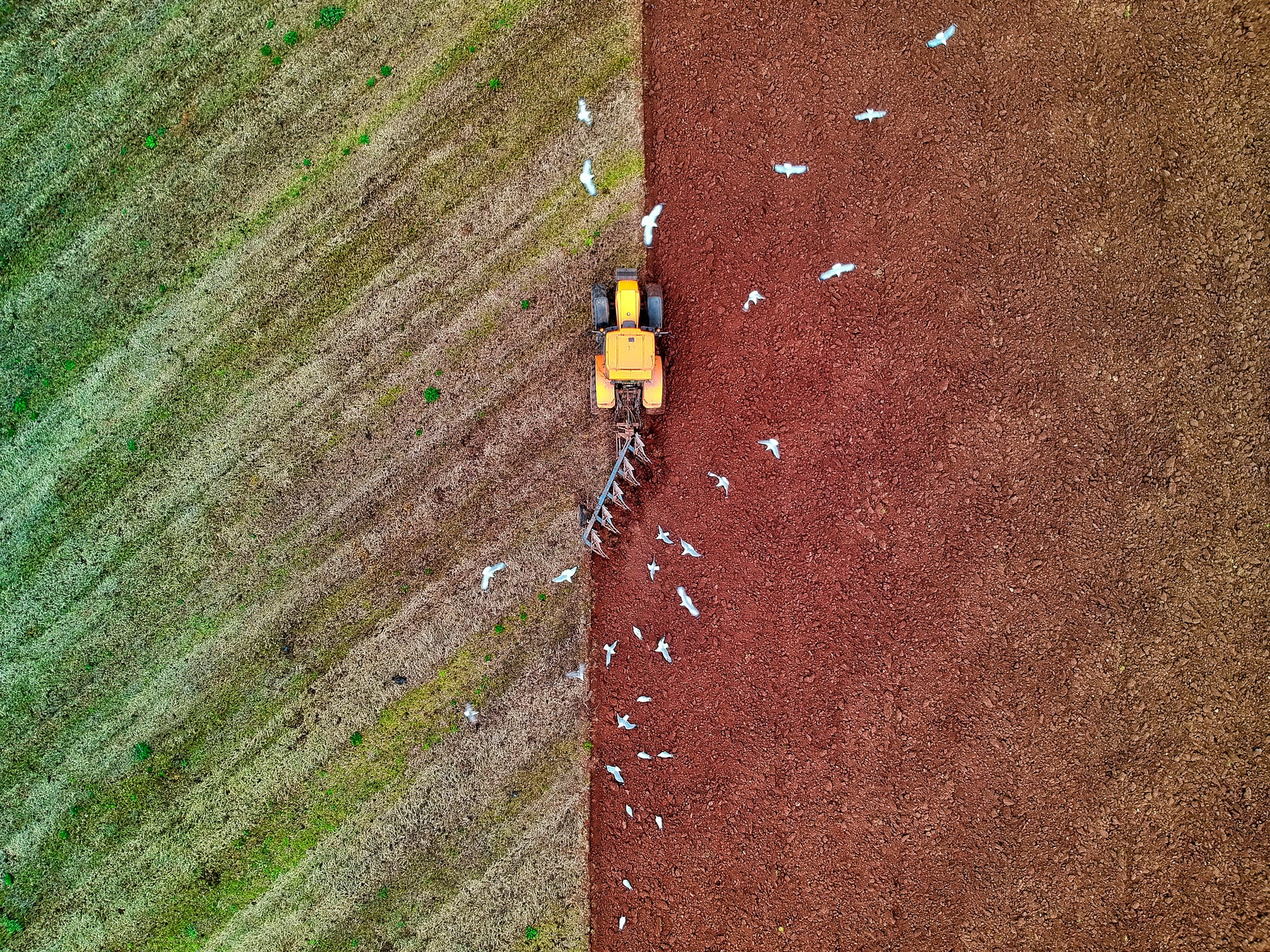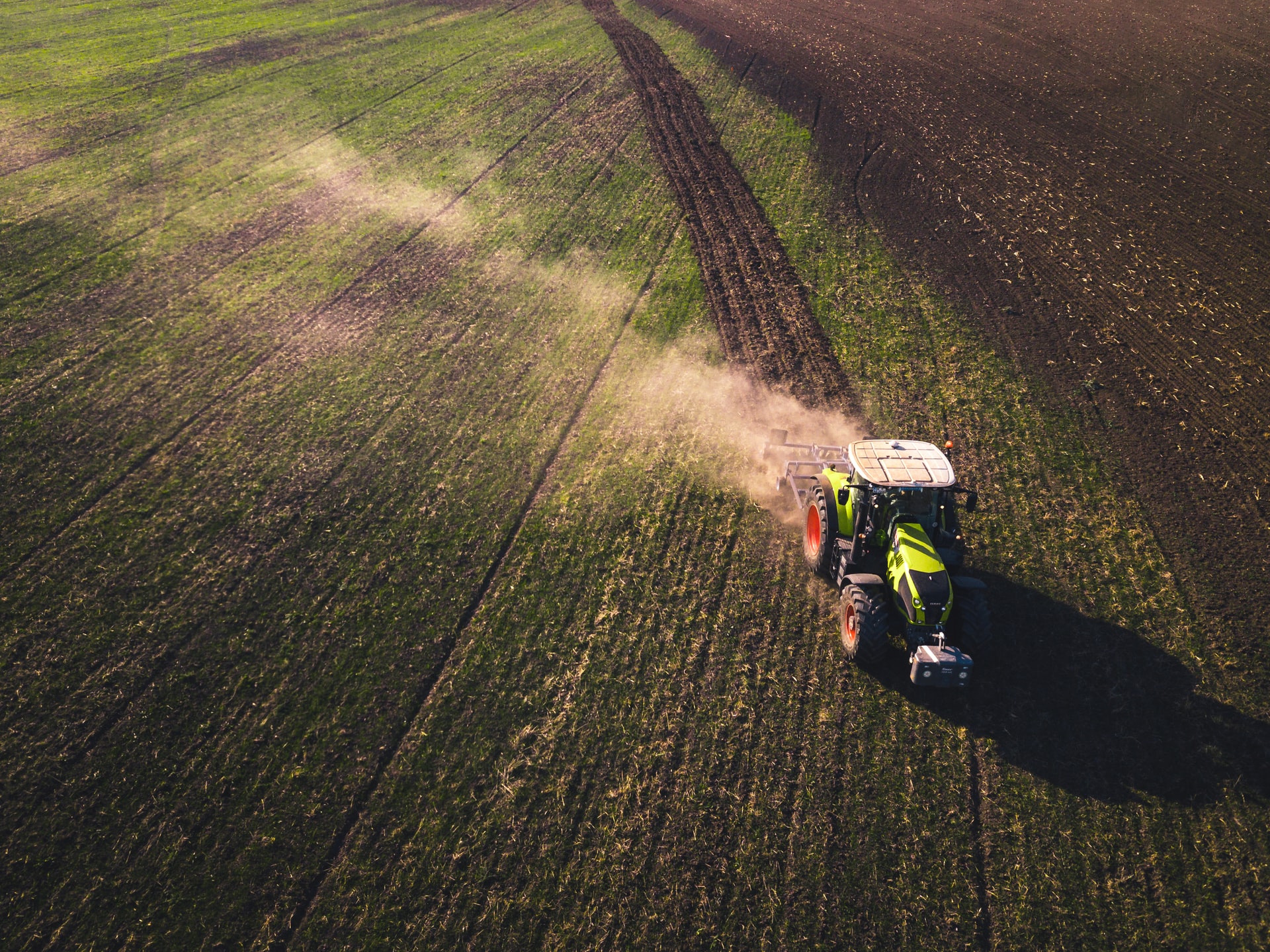At Recyclops, we are a technology-driven startup that innovates solutions for sustainability, starting with recycling. We believe that recycling and sustainable options should be accessible to everyone.
But sustainability doesn’t just start and end with recycling. It runs into every aspect of our daily lives and impacts all industries including agriculture and how we source food. But what is agriculture and how can sustainability be paired with it in order to create a better future for everyone?
Agriculture is a general term used to describe every aspect of farming and raising animals for food or other materials. This could be everything from gathering animal hide for leather products to the eggs you eat in the morning. Additionally, crops that we use on a daily basis for consumption and for important manufacturing materials such as oils and textile production.
When you understand what agriculture is, it’s easy to grasp that this is a crucial industry for everyone on the planet. Unfortunately, however, there are massive amounts of waste and excess carbon produced when completing many basic agricultural activities which harm the environment and those living in them, from the animals to us.
But agricultural waste doesn’t just mean more waste in the landfills and carbon in the air, it also can create a shortage of food for those living in certain areas and communities. This is a massive issue as over 40 million Americans were found to be food insecure in 2019.
As mentioned above, along with food insecurity the emissions released through this agricultural waste accounts for over 8% of total global greenhouse gas emissions. To put it in perspective, if agricultural waste was its own country, it would be the third-largest emitter of greenhouse gas emissions on the planet following the United States and China.
That may sound bleak for the industry, but luckily there are great options to bring sustainable practices and procedures into the agricultural industry. So what is sustainable agriculture and what positive impact can it have on this growing environmental issue.
What is Sustainable Agriculture?
Sustainable agriculture is a complex term that in some cases can be very confusing. To find out more about what sustainability is check out this blog here.
Sustainable agriculture however, comprises several main areas just like sustainability itself. These main areas of sustainable agriculture are:
- Building and maintaining healthy soil
- Managing water wisely
- Minimizing air, water, and climate pollution
- Promoting biodiversity
All of these areas are great ways in which businesses in the agricultural sector can start creating a more sustainable process when producing their products. Also, there’s a whole field of research devoted to working on this area called: Agroecology, the science of managing farms as ecosystems.
Find out more about Agroecology here.
That in a nutshell is sustainable agriculture. Creating a balance between the natural resources and the ways in which we produce food and materials for our communities.
The Different Methods of Sustainable Agriculture:
While this subject may seem complex, and in many aspects it is. However, there are proven ways in which farmers and agricultural product producers can start functioning more sustainably. Below is a list of four proven methods of sustainable agriculture and ways in which we can reduce the overall negative impact of the industry.
1) Creating Diversity by the Rotation of Crops:
Increasing the breadth of crops that are being grown can help the surrounding environment in several ways. These benefits include an increase in the health of the soil and can also lead to a decrease in the damage done by pests and other crop-killing animals. Even by planting numerous different species of plants in the same area, no matter the size, you should be able to see a benefit through creating this diversity.
2) Reduce or Remove Tillage from your process:
Tilling land is a common practice used to prepare the soil for the planting of crops. This process agitates the surrounding soil through either digging, overturning, or stirring the solid through a mechanical process. Unfortunately, this process over time can lead to the erosion of the soil and eventually can even cause the soil to become unhealthy, thus decreasing the number of nutrients provided by the soil to the crops. The process of no-till farming helps to place nutrients back into the soil and stop the agitation process completely, allowing for healthier crops and a larger crop yield over time.
3) Re-Integrate Livestock and Crops:
Modern agricultural practices usually force farmers to separate the livestock and crops for processes as well as regulation. This causes animals to be raised far from where their food is grown and creates a gap in the natural environmental process. Additionally, crops are grown farther away from the nutrition given off by the livestock (manure). Re-integrating the livestock and crops allows a more natural process to take shape, opening up the ability for livestock to graze on plants and give vital nutrients to crops. Non-surprisingly as well, this process can actually create a more efficient and profitable farming structure, so everyone can be happy.
4) Using Integrated Pest Management:
Integrated pest management (IPM) is a way for farmers to use mechanical and biological methods to help combat pests. This allows farmers to use less chemical pesticides and allow for a more natural and efficient approach when producing their agricultural product.
To find out more about integrated pest management, check out this article.
Start Recycling with Recyclops.
Our team at Recyclops makes it easy to recycle today straight from the convenience of your home. With our service, you know that your recyclables are going to a designated recycling facility and not a landfill. Learn more about where your recycling goes here.
Depending on your location, recycling is as easy as putting all your materials in one or more bags (depending on how many you have) and putting them right on your doorstep or curbside. Your local Recyclops driver will be there to pick up your materials and ensure they arrive at the destination. And don’t worry about making space for another bin, Recyclops bags or carts come with all our services and pickups come at your convenience.
We want to make recycling easy and simple, and that starts with recycling on your schedule.
Check Out Our Other Posts.
by Spencer Olsen | September 8, 2023 | Announcements | 0 Comments
Recyclops Achieves B Corp Certification Recyclops is proud to join some of the best brands in the world by achieving B Corp CertificationRecyclops Achieves B-Corp Certification: A Milestone in Sustainability Leadership 🌍 🌱We are thrilled to announce that Recyclops,...
by Spencer Olsen | August 29, 2022 | Post, Utah, Wasatch County | 0 Comments
We're excited to announce we are launching a new food waste recycling program exclusively offered to our Wasatch County customers! Did you know that there is more organic waste in landfills than any other item? Food waste makes up over 1/3 of landfill material and...
by Spencer Olsen | August 19, 2022 | Post | 0 Comments
Whether you or your children are incoming first-year students or returning to campus this fall, pursuing a greener move-in experience is possible if you consider: Coordinating needs with future roommates/suitemates and only bringing what you need. It may be possible...
by Spencer Olsen | August 15, 2022 | Post | 0 Comments
Sustainable fashion has been an ongoing trend and introduced environmental practices to businesses as early as the 1980s. As our kids gear up to return to the classrooms, this is also the time to focus on fashion, uniforms and styles that work to assist our...
by Spencer Olsen | August 5, 2022 | Post | 0 Comments
Back to School Did you know that an American school uses about 250,000 pieces of paper on average a year?Think about the number of schools in the US. We’re talking about billions of sheets of paper. And that’s only paper, without taking into account the plastics. So,...
by Spencer Olsen | August 1, 2022 | Post | 0 Comments
It's our final week of Plastic Education month. We've discussed ways to recycle plastic and how it's recycled... but we also want to note the harmful effects of plastic on our environment. It's so important to recycle and keep it out of our landfills as much as...
by Spencer Olsen | July 25, 2022 | Post | 0 Comments
We are highlighting Plastic Education this month. In our ongoing series, this week we are focusing on, “How Plastics are Recycled.” There are different types of recycling: traditional vs. advanced. Did you know the US is the world’s largest plastic creator and...
by Spencer Olsen | July 15, 2022 | Post | 0 Comments
There is plastic all around us. From soda bottles, grocery bags, to your ID card, even in your clothes! We use plastic every day even when we don’t know it. Many of these plastics come from materials like petrochemicals. The amount of plastic around us can have...
by Spencer Olsen | July 1, 2022 | Post | 0 Comments
Are You Recycling Your Metal Cans the Right Way? Here's What to Do: All cans are recyclable, but make sure you're doing it correctly. Here are the do's and don'ts. One small thing you can do to help the planet is to start keeping track of how many cans you go through...
by Spencer Olsen | June 29, 2022 | Announcements | 0 Comments
Recyclops has just launched in Chesapeake, VA! If you live in the Chesapeake, Virginia area, you can now sign up for Recyclops services! You may be asking yourself, “What is Recyclops”? Recyclops is an at home pick up recycling service. We collect items such as...


